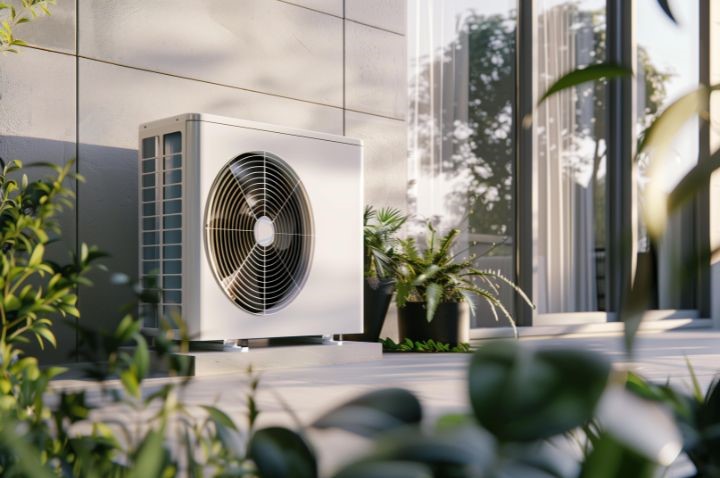
Favourites
Sign in to your account
By adding to Favourites, you can…
- Save products or resource documents you view regularly
- Save time with quick access to frequently viewed items
Please sign in or create an account to add to your Favourites.
Articles
August 5, 2024
A Complete Guide to Different Hot Water System Types
In an average Australian household, more than a quarter of its energy is used to power a hot water system. It is important to review hot water use to choose the most effective system to run in your household or project.
In this article, we’ll be covering:
- Electric water systems
- Gas water systems
- Solar water systems
- Heat pump systems
- Continuous flow (instantaneous water heaters)
- Storage water heaters
We’ll let you know how these different systems compare and which one is right for your needs.
Different types of hot water systems
Hot water systems can be powered by electricity, gas or solar. Water heaters can also work in different ways. Most systems require a tank, whilst others work with a heat pump or as a tankless instantaneous system.
Electric hot water systems
Electric hot water systems are powered by electricity through the mains energy supply. These systems are available as storage or instantaneous systems.
Electric systems can be installed indoors or outdoors depending on their size and requirements. Storage tanks can range in size between 5L to over 250L. In Australia, new electric water heaters must meet the Minimum Energy Performance Standards.
Non-solar electric storage hot water heaters are typically the most expensive to run. However, more energy-efficient solutions are now available – including instantaneous water heaters and compact storage tanks.
Instantaneous water heaters run with significantly less heat loss as water is only heated when used. They are therefore is typically more energy efficient. Compact storage heaters such as the Bromic hot water systems also offer energy-efficient solutions for offices and kitchens where hot water is used minimally.
For more information on electric water heaters, check out our complete guide to how hot water systems work.
Gas hot water systems
Gas hot water systems are powered by natural gas or liquefied petroleum gas (LPG). These systems can be storage or instantaneous, just like electric water heaters. Gas water heaters operate with a gas burner at the base of the tank.
Natural gas systems can be cheaper to run in Australia, as gas costs are cheaper than electricity by MJ. LPG on the other hand, costs 2-3 times more to run than natural gas. Gas is also a fossil fuel and is estimated to become more expensive in the future as movements to reduce carbon emissions will grow.
When compared to electric storage systems, gas storage units can heat water more quickly and can therefore use a smaller tank. Gas storage systems have high heat loss compared to electric systems as there is no insulation at the base of the tank to provide ventilation for the burning gas flame.
Solar hot water systems
A solar hot water system uses solar panels or collectors to absorb energy from the sun. Water is heated by this energy as it passes through the collectors and flows into an insulated storage tank to be used later.
Solar systems are relatively energy efficient and are cheaper to run, with running costs significantly lower than other hot water systems.They also require careful calculation to maximise the amount of sunlight hitting the solar panels as they require roof-mounted collectors.
Another bonus to solar hot water systems is the significantly lower greenhouse gas emissions compared to gas hot water systems.
On the downside, solar hot water systems are relatively more expensive to set up and typically have more upfront costs than conventional hot water systems.
Heat pump water heaters
Heat pumps are a type of storage system that works similarly to a fridge or air conditioner. They extract heat from the air to heat water and the water tank. Pump hot water systems use electricity to transfer heat instead of generating heat directly.
Although they cost more upfront than hot water systems that directly heat water, heat pumps are the lowest emitters of greenhouse gas emissions. They are one of the cheapest options in terms of running costs with a breakeven point of about 5 years.
These heaters are also ideal when there is very little solar access. They also avoid any risk of overheating as the compressor turns off when the stored water reaches the required temperature.
However, heat pump water heaters require a well-ventilated space. They can be a little noisy as they also produce noise with their fan.

Different types of electric hot water systems
There are 2 basic types of electric hot water systems. One type of hot water system is the continuous flow system, also known as an instantaneous water system. The other type is a storage electric hot water system.
Instantaneous electric hot water system
Also known as continuous flow water heaters, instantaneous water heaters only heat water when in use.Therefore, they do not use a storage tank. Because of this, they usually have less heat and energy loss when compared to electric storage systems.
These heaters also do not run out of hot water. Through sophisticated water temperature controls, instantaneous hot water systems also allow users to control the exact temperature they would like the water to be without diluting it with cold water. This energy-efficient method reduces the risk of burns and scalding.
Storage electric hot water system
Most hot water systems use a tank which stores hot water. For households that use a lot of hot water, a storage tank is the most cost-effective method.
An electric storage water heater has water that is heated and stored in an insulated tank, ready for usage. These tanks can move water with mains pressure or as a gravity fed system. However they may experience some heat loss, so it is preferable to install the tanks in a sunny or well-insulated area.
Storage tanks can be made of copper, glass-lined steel or stainless steel. If the tanks are made of copper or glass then they may have an anode to reduce corrosion. Anodes need to be replaced every couple of years. The electric storage tank is usually located at either the ground level inside or outside.

Browse Bromic hot water systems
As the hot water supply is only heated when the hot water faucet is turned on, Bromic Instantaneous Electric Hot Water systems ensure low energy consumption and reduce heat loss. Instant electric hot water systems allow for a more sustainable approach to heating water, eliminating unnecessary water lines and reducing water wastage for the user.
If this sounds like the perfect solution for you, contact Bromic Plumbing and Gas today.
